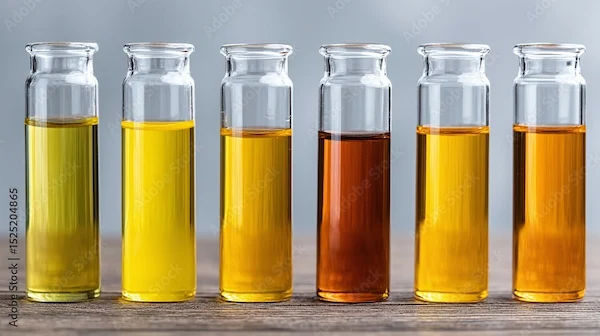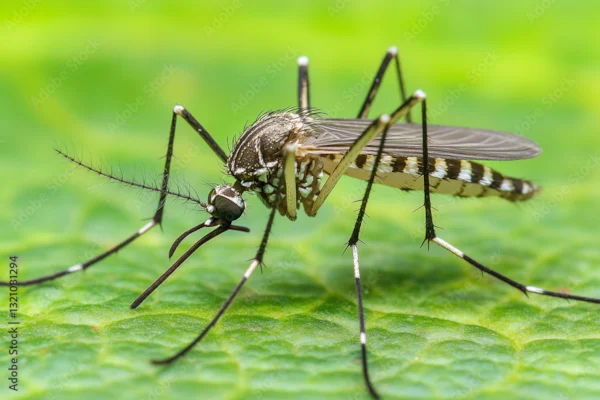How to Reduce Heart Blockage Without Surgery
Learn how to reduce heart blockage naturally. Discover lifestyle changes, dietary adjustments, and alternative therapies to improve heart health without surgery.

Written by Dr.Sonia Bhatt
Last updated on 3rd Jul, 2025

Heart blockage, or coronary artery disease (CAD), occurs when plaque builds up in the arteries, reducing blood flow to the heart. This condition can cause chest pain (angina) and shortness of breath and increases the risk of heart attacks. While surgery or invasive procedures like stent placement may be necessary in severe cases, there are several non-surgical methods to reduce heart blockage and improve overall heart health.
Adopt a Heart-Healthy Diet to Reverse Plaque Build-up
The foundation of reducing heart blockage lies in a nutritious and well-balanced diet. Certain foods can help to reverse or slow down the build-up of plaque in the arteries, improve circulation, and reduce inflammation.
Increase Antioxidant-Rich Foods: Antioxidants found in foods such as berries, green leafy vegetables, and nuts can help to reduce oxidative stress and inflammation in the arteries. These compounds can prevent the further progression of plaque and may even support the breakdown of existing plaque.
Incorporate Omega-3 Fatty Acids: Omega-3s, present in fatty fish such as salmon and sardines, have anti-inflammatory properties. They help reduce triglycerides and prevent plaque from forming.
Eat More Whole Grains and Legumes: These fibre-rich foods can help reduce cholesterol levels. Soluble fibre helps to remove cholesterol by binding to it, preventing further plaque formation.
Reduce Processed Foods and Sugars: Processed foods and sugar increase inflammation and can contribute to higher cholesterol levels, exacerbating plaque build-up. Minimising their consumption can help reduce the risk of worsening heart blockage.
Focus on Natural Therapies for Reducing Blockage
There are several natural therapies and supplements that may support the body's ability to reduce heart blockage. While conventional medicinal treatment should not be replaced by them, they can be effective complementary approaches.
Garlic: Garlic has been shown to have several cardiovascular benefits, including reducing blood pressure, lowering cholesterol levels, and potentially reducing the size of plaques in the arteries. Consuming raw garlic or garlic supplements may help break down plaque and improve arterial health.
Coenzyme Q10 (CoQ10): CoQ10 is an antioxidant that helps improve energy production in cells and supports heart health. Studies suggest it can improve circulation and help reduce the effects of heart disease, especially in people taking statin medications for cholesterol control.
Turmeric: Curcumin, the active compound in turmeric, is a potent anti-inflammatory that may help reduce plaque formation in arteries. It can improve endothelial function and blood flow, making it a helpful addition to a heart-healthy diet.
Cayenne Pepper: Rich in capsaicin, cayenne pepper is believed to improve blood circulation and reduce arterial plaque. It can also help lower blood pressure and reduce the risk of blood clots, making it beneficial for reducing heart blockage.
Before incorporating these supplements, it is essential to discuss them with a healthcare provider to ensure they are appropriate for your condition.
Increase Physical Activity to Improve Circulation
Physical activity plays a crucial role in reducing heart blockage. Regular exercise helps lower cholesterol, reduce blood pressure, and improve circulation, all of which can have a positive effect on reducing plaque buildup in the arteries.
Aerobic Exercise: Engage in moderate aerobic exercise like walking, cycling, or swimming. This can help lower your “bad” LDL cholesterol while increasing “good” HDL cholesterol. Regular aerobic activity also promotes heart health by improving overall cardiovascular function and reducing blood clot risk.
Strength Training: Incorporating strength training exercises can improve metabolism and help control weight, which can reduce strain on the heart and improve circulation.
Exercise Consistency: Aim for at least 30 minutes of moderate exercise most days of the week. The more consistently you exercise, the more likely you are to experience improvements in heart health.
By improving circulation and lowering cholesterol, exercise can help slow down the progression of heart disease and even promote plaque reduction over time.
Control Your Cholesterol Levels with Medications and Lifestyle Changes
If your cholesterol levels are high, they may be contributing to the plaque buildup in your arteries. While medications such as statins can help control cholesterol, combining them with lifestyle changes may help reduce blockage and prevent further plaque formation.
Statins and Cholesterol-Lowering Drugs: Statins are commonly prescribed to lower LDL cholesterol, the primary contributor to plaque buildup. Research suggests that statins can help stabilise existing plaques, making them less likely to rupture and cause a heart attack. In some cases, statins can even reduce the size of plaques.
Cholesterol-Lowering Diet: Along with taking medications, follow a cholesterol-lowering diet that includes soluble fibres, healthy fats, and antioxidants to help manage cholesterol levels and reverse plaque buildup.
Monitor Your Lipid Profile: Regular monitoring of your cholesterol levels allows you to track the effectiveness of your treatment plan and adjust medications or lifestyle changes as needed.
Manage Stress and Reduce Inflammation
Chronic stress and inflammation can significantly contribute to heart disease by exacerbating the formation of plaque and narrowing the arteries. Managing stress and reducing inflammation are essential in tackling existing heart blockages.
Mindfulness and Relaxation: Practices such as meditation, deep breathing exercises, and yoga can significantly reduce stress. These activities lower cortisol levels, which in turn helps reduce inflammation and the formation of plaque.
Improve Sleep Quality: Sleep is crucial for reducing stress and inflammation. Aim for 7-9 hours of quality sleep per night. Sleep helps regulate blood pressure and cholesterol levels, making it an essential part of any strategy to reduce heart blockage.
Anti-inflammatory Diet: Follow a diet rich in anti-inflammatory foods like olive oil, fatty fish, and turmeric to help reduce the internal inflammation that contributes to plaque build-up in the arteries.
Monitor Your Blood Pressure and Take Action to Lower It
High blood pressure, or hypertension, is a significant contributor to heart disease and can worsen the effects of heart blockage. If left uncontrolled, high blood pressure can accelerate the development of atherosclerosis, causing arteries to narrow and increasing the risk of heart attacks.
Maintain Healthy Blood Pressure: Aim to keep your blood pressure below 130/80 mmHg. Monitor your blood pressure regularly and take prescribed medications if necessary.
Lifestyle Modifications: Reducing sodium intake, limiting alcohol consumption, and increasing potassium-rich foods such as bananas and spinach can help control blood pressure levels.
Relaxation Techniques: Practice stress-reduction methods such as progressive muscle relaxation or mindfulness to prevent blood pressure spikes that contribute to heart disease.
Consider Angioplasty or Other Non-Surgical Treatments
For patients with moderate to severe heart blockage, angioplasty (a non-surgical procedure) may be recommended to open up narrowed arteries. During angioplasty, a balloon is inflated in the artery to widen it, often followed by the placement of a stent to keep the artery open. While this is a minimally invasive procedure, it’s effective in restoring blood flow and reducing heart blockage without the need for major surgery.
Although angioplasty can provide temporary relief, lifestyle changes and medication remain crucial for long-term success in reducing heart blockage.
Conclusion
Reducing heart blockage without surgery is entirely possible through a combination of lifestyle changes, medical treatments, and natural therapies. By adopting a heart-healthy diet, increasing physical activity, managing stress, and controlling cholesterol and blood pressure, patients can significantly reduce the impact of existing heart blockage. Moreover, supplements like garlic and CoQ10, along with targeted therapies like angioplasty, may offer additional support.
While these measures can be highly effective, it's important to work closely with your healthcare provider to develop a comprehensive, tailored treatment plan. Regular check-ups and monitoring will ensure you're on the right track towards improved heart health.
Consult Top General Physicians
Consult Top General Physicians

Dr Syed Mateen Pasha
General Physician
2 Years • MBBS
Bengaluru
PRESTIGE SHANTHINIKETAN - SOCIETY CLINIC, Bengaluru

Dr Aakash Andgi
General Physician/ Internal Medicine Specialist
9 Years • MBBS MD
Bengaluru
Apollo Clinic, JP nagar, Bengaluru

Dr. Anand Ravi
General Physician
2 Years • MBBS
Bengaluru
PRESTIGE SHANTHINIKETAN - SOCIETY CLINIC, Bengaluru

Dr. Mohamed Azeem
General Physician/ Internal Medicine Specialist
2 Years • MBBS,MD(Internal Medicine) CCEBDM
Karaikudi
Apollo Hospitals Karaikudi, Karaikudi

Dr. Sandhya Chandel
General Physician/ Internal Medicine Specialist
16 Years • MBBS, MD (Int. Med.), IDCCM
Bilaspur
Apollo Hospitals Seepat Road, Bilaspur
(125+ Patients)




